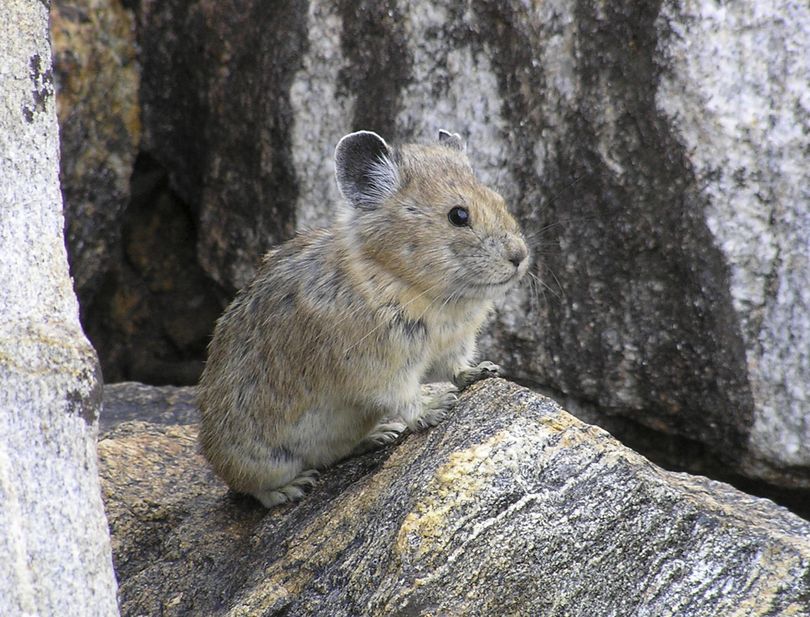Paris climate decision bad for fish, birds, critters and people who love them

ENVIRONMENT -- The Trump Administration announced today that it is withdrawing the United States from the Paris Climate Change Accord. The majority of the world's scientists are cringing. The United States Conference of Mayors has "strongly opposed" the Trump decision. Representatives of sportsmen and wildlife groups are incredulous that they have to start from the ground up again to deal with a problem that's headed toward crisis proportions.
In addition to the coastal cities around the world, a future without curbing climate change is bad news for critters such as pikas, polar bears and wolverines as well as a wide range of migratory birds and cold-water fish such as steelhead and salmon.
For one of many perspectives flooding from sporting and wildlife communities today, here's a statement by Trout Unlimited President Chris Wood:
"Trout Unlimited and its 300,000 members and supporters are deeply disappointed that President Trump has withdrawn the United States from the Paris Climate Accord. The U.S. is now one of three nations in the world not to agree to take measures to combat climate change. Today’s withdrawal will likely lead to increased harm to our water resources, including our precious trout and salmon resources.
Trout anglers know better than anyone the impacts of climate change and rising atmospheric temperatures. We have all witnessed these changes: earlier runoff, lower stream flows in summer, altered migration timing, and water too warm for trout.
Whether you are a Republican or a Democrat; accepting of prevailing climate change science or not, one fact remains inescapable: Trout and salmon depend on an abundant supply of cold, clean water every day.
U.S. Forest Service scientists predict that more than half of the wild trout populations will likely disappear from the southern Appalachian Mountains because of the effects of warming stream temperatures. Losses of western trout populations may exceed 60 percent in certain regions, with potential losses of migratory bull trout as high as 90 percent.
Trout and salmon are remarkably resilient creatures. If the habitats that they depend on are healthy, they can persist. TU has developed an integrated, landscape-scale strategy to ensure they do. First, protect the highest quality habitats. Second, reconnect protected areas to surrounding habitats. Third, restore habitats where such actions will most benefit trout and salmon. The core of this strategy is to work with state and federal agencies, conservation partners, and others to help rebuild the natural resilience of trout and salmon watersheds.
Importantly, this work benefits people too. Protecting headwater streams reduces drinking water filtration costs. Reconnecting rivers to their floodplains diminishes the risk of downstream flooding. And restoring rivers creates high-paying family wage jobs in rural communities.
TU will continue this work with our partners to buy time for trout and salmon until the political will emerges to address the causes of climate change. We remain steadfast in urging the President, Congress and the States to work with us to build watershed resilience, and an energy future which minimizes impacts to trout and salmon resources."
The American Bird Conservancy voiced even stronger concern in a release:
American Bird Conservancy condemns President Donald J. Trump’s decision, announced today, to pull the United States out of the Paris Agreement on climate change. The reversal increases the dangers that a changing climate creates for migratory birds like Red Knot and many other species, including humans.
Sierra Club executive director Michael Brune said in a statement:
“Generations from now, Americans will look back at Donald Trump’s decision to leave the Paris Agreement as one of the most ignorant and dangerous actions ever taken by any President,”
“Hunters and anglers are on the front lines of the changing climate. We witness firsthand the changes that are happening to our fish and wildlife populations and natural systems across the nation: Lengthier fire seasons, delayed duck migrations, shrinking coldwater fisheries, dying coral reefs, tick-ridden moose, intensifying algal blooms, and much more,” says Fosburgh.“Smart people can disagree about the solutions to climate change, but the science clearly shows that we need to do something. The Paris agreements might not be perfect, but they are voluntary measures embraced by almost all of the nations in the world. As Americans who enjoy so many privileges afforded by the outdoors, we must all help ensure that our natural world is conserved for our children and for, as Theodore Roosevelt stated, those still ‘within the womb of time.’”With the absence of federal leadership, the TRCP counts itself among the NGOs that will need to join with states, local communities, corporations, and American citizens to follow the science and do what we can to conserve our outdoor heritage.
